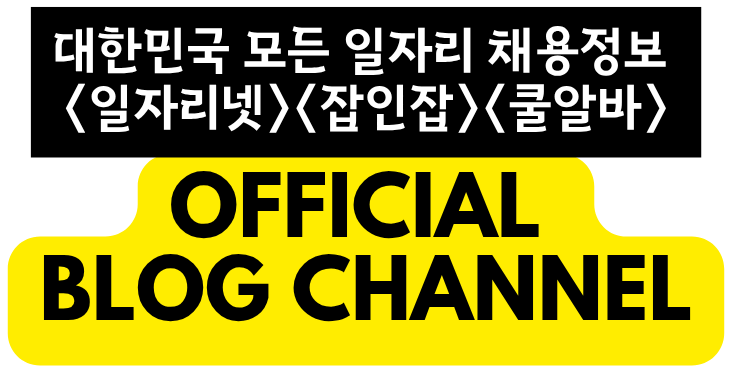

Understanding the Massage Therapy Field
The massage therapy industry has witnessed significant growth in recent years, reflecting an increasing demand for holistic health and wellness services. As people become more aware of the importance of mental and physical well-being, the role of massage therapy has evolved beyond mere relaxation to encompass various therapeutic techniques aimed at treating specific ailments and enhancing overall health. The market for massage therapy has expanded, providing numerous opportunities for individuals seeking a rewarding career in this field.
There are several popular types of massage and therapeutic techniques that practitioners employ, each contributing uniquely to physical and mental wellness. Among them, Swedish massage, known for its gentle and effleurage techniques, promotes relaxation and stress relief. Deep tissue massage, on the other hand, targets deeper layers of muscle and connective tissue, making it effective for chronic pain relief and injury rehabilitation. Sports massage, tailored to athletes, focuses on enhancing performance and recovery. Additionally, specialized techniques such as trigger point therapy, hot stone massage, and aromatherapy are increasingly sought after by clients seeking targeted relief and improved health outcomes.
For those considering entering this evolving field, obtaining the necessary education and certification is paramount. Aspiring massage therapists typically need to complete a formal training program, which may range from 500 to over 1,000 hours of instruction, depending on the state or country’s specific requirements. Programs often encompass a comprehensive study of anatomy, physiology, and various massage techniques, in addition to hands-on practice. Certification ensures that massage therapists maintain a high standard of care and professionalism, creating a solid foundation for a fulfilling career. This career path not only offers personal fulfillment through helping others but also presents lucrative opportunities due to the increasing recognition of the benefits associated with therapeutic massage.
Essential Skills and Qualities of a Successful Massage Therapist
Massage therapy is a profession that demands a unique blend of skills and personal attributes to ensure success. At the core of these skills are exceptional communication abilities. A successful massage therapist must be adept at listening to clients’ needs and concerns, allowing them to tailor their approach accordingly. This clear line of communication not only builds trust but also fosters a comfortable environment for the client, enhancing their overall experience and satisfaction.
Another pivotal quality is empathy. Understanding the physical and emotional states of clients allows therapists to provide a personalized experience that goes beyond mere muscle manipulation. For instance, a well-practiced therapist can detect tension patterns in clients, often discussing related issues that contribute to discomfort. This empathetic approach can significantly enhance the therapeutic relationship, leading to repeat business and referrals, which are essential in this competitive field.
Professionalism is also crucial, as it encompasses the therapist’s demeanor, integrity, and adherence to ethical standards. Being punctual, maintaining a clean and inviting workspace, and respecting client confidentiality all contribute to establishing a reputable practice. Furthermore, demonstrating a commitment to the profession by continuously seeking education and skill enhancement is crucial in the dynamic world of massage therapy. Many therapists participate in workshops, certification courses, and stay updated on the latest trends and techniques to provide the best care possible.
Real-life examples illustrate these qualities in practice. For instance, a successful massage therapist may share how their effective communication helped a client address chronic pain that traditional treatments had failed to resolve. Ultimately, the combination of strong communication skills, empathy, professionalism, and a commitment to continual learning enables massage therapists to thrive in their careers, effectively meeting the diverse needs of their clientele.
Finding Job Opportunities: Where to Look
Embarking on a career in massage therapy opens numerous doors, but identifying job opportunities requires a strategic approach. A variety of employment settings are available, including spas, wellness centers, resorts, and private practices. Each venue offers unique benefits and caters to different clientele, thus diversifying your potential experience. Spas, for instance, often provide a relaxing atmosphere, while wellness centers might focus on holistic healing and medical massage.
When searching for positions in the massage therapy field, leveraging online job boards can be particularly effective. Websites like Indeed, Glassdoor, and specialized platforms such as Massage Envy’s job portal provide listings that cater specifically to massage professionals. It is essential to use a targeted approach when searching; incorporating keywords like “massage therapist,” “licensed massage therapist,” or “spa technician” will yield the most relevant results. Additionally, setting alerts on these platforms can help you stay informed about new openings tailored to your qualifications and preferences.
Social media has emerged as a powerful tool in job searching. Joining groups focused on massage therapy on platforms like Facebook or LinkedIn can connect you with potential employers and fellow professionals. Networking is invaluable; engaging in conversations, asking for referrals, or even reaching out directly to practitioners can often lead to unadvertised positions. Furthermore, consider attending local workshops or seminars related to massage therapy. These events not only enhance your skills but also expand your connections within the industry.
Finally, as you explore job opportunities, pay special attention to crafting a compelling resume and cover letter. Tailoring these documents to highlight your specific skills and experiences relevant to the massage therapy field will increase your chances of making a strong impression on potential employers. By utilizing a combination of these strategies, aspiring massage therapists can effectively navigate the job market and enhance their career prospects.
Preparing for the Interview Process
Securing a position in the massage therapy field requires thorough preparation, particularly when it comes to the interview process. Interviews serve as platforms for candidates to demonstrate not only their skills and experiences but also their professionalism and confidence. Understanding common interview questions specific to massage therapy can greatly enhance the candidate’s readiness. Some frequently asked questions may include inquiries about your treatment philosophy, experience with diverse clientele, and techniques you employ in your practice. Crafting thoughtful and articulate responses to such questions can effectively showcase your qualifications and unique approach to massage therapy.
Moreover, it is essential to reflect on your past experiences in the field, be it through formal education, internships, or previous employment. Highlight specific techniques you excel in or unique client interactions that shaped your practice. By preparing these anecdotes in advance, you can present yourself as a knowledgeable and reflective professional. It can also be beneficial to adopt a strengths-based approach in your answers, focusing on your ability to contribute positively to the workplace environment as well as client satisfaction.
Demonstrating professionalism during the interview itself is crucial. This includes dressing appropriately, maintaining eye contact, and engaging in active listening. Confidence plays a significant role in how you are perceived by potential employers; therefore, practicing your interview responses with a friend or mentor can help you articulate your thoughts more clearly. After the interview concludes, it’s vital to follow up with a thank-you note or email, reiterating your interest in the position and appreciation for the opportunity to interview. This final touch not only reinforces your professionalism but also keeps you top-of-mind for hiring managers as they make their decisions.
참조 : 초보 마사지관리사, 성공적인 마사지구인구직 방법 알아보기
.png)
.png)






답글 남기기